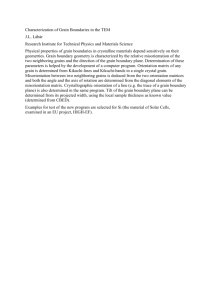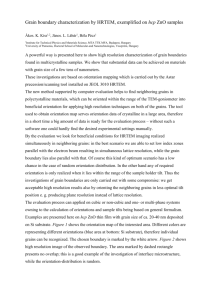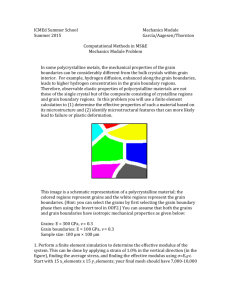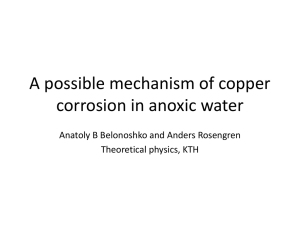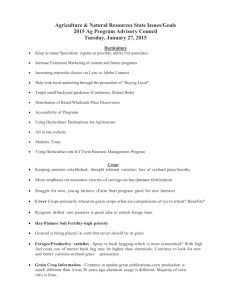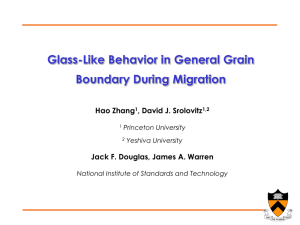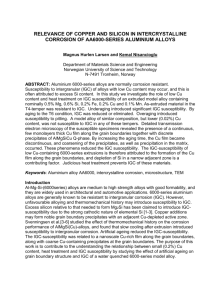Atomic scale analysis of grain boundary segregation of carbon in an
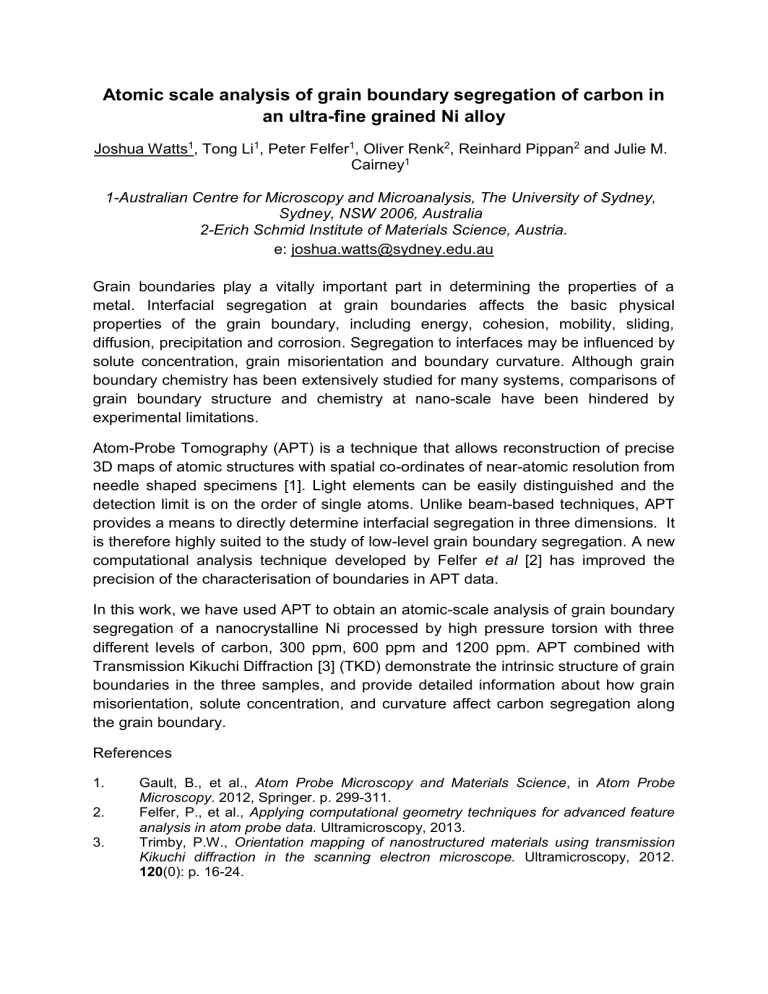
Atomic scale analysis of grain boundary segregation of carbon in an ultra-fine grained Ni alloy
Joshua Watts 1 , Tong Li 1 , Peter Felfer 1 , Oliver Renk 2 , Reinhard Pippan 2 and Julie M.
Cairney 1
1-Australian Centre for Microscopy and Microanalysis, The University of Sydney,
Sydney, NSW 2006, Australia
2-Erich Schmid Institute of Materials Science, Austria. e: joshua.watts@sydney.edu.au
Grain boundaries play a vitally important part in determining the properties of a metal. Interfacial segregation at grain boundaries affects the basic physical properties of the grain boundary, including energy, cohesion, mobility, sliding, diffusion, precipitation and corrosion. Segregation to interfaces may be influenced by solute concentration, grain misorientation and boundary curvature. Although grain boundary chemistry has been extensively studied for many systems, comparisons of grain boundary structure and chemistry at nano-scale have been hindered by experimental limitations.
Atom-Probe Tomography (APT) is a technique that allows reconstruction of precise
3D maps of atomic structures with spatial co-ordinates of near-atomic resolution from
needle shaped specimens [1]. Light elements can be easily distinguished and the
detection limit is on the order of single atoms. Unlike beam-based techniques, APT provides a means to directly determine interfacial segregation in three dimensions. It is therefore highly suited to the study of low-level grain boundary segregation. A new computational analysis technique developed by Felfer et al
precision of the characterisation of boundaries in APT data.
In this work, we have used APT to obtain an atomic-scale analysis of grain boundary segregation of a nanocrystalline Ni processed by high pressure torsion with three different levels of carbon, 300 ppm, 600 ppm and 1200 ppm. APT combined with
Transmission Kikuchi Diffraction [3] (TKD) demonstrate the intrinsic structure of grain
boundaries in the three samples, and provide detailed information about how grain misorientation, solute concentration, and curvature affect carbon segregation along the grain boundary.
References
1.
2.
3.
Gault, B., et al., Atom Probe Microscopy and Materials Science , in Atom Probe
Microscopy . 2012, Springer. p. 299-311.
Felfer, P., et al., Applying computational geometry techniques for advanced feature analysis in atom probe data.
Ultramicroscopy, 2013.
Trimby, P.W., Orientation mapping of nanostructured materials using transmission
Kikuchi diffraction in the scanning electron microscope.
Ultramicroscopy, 2012.
120 (0): p. 16-24.
